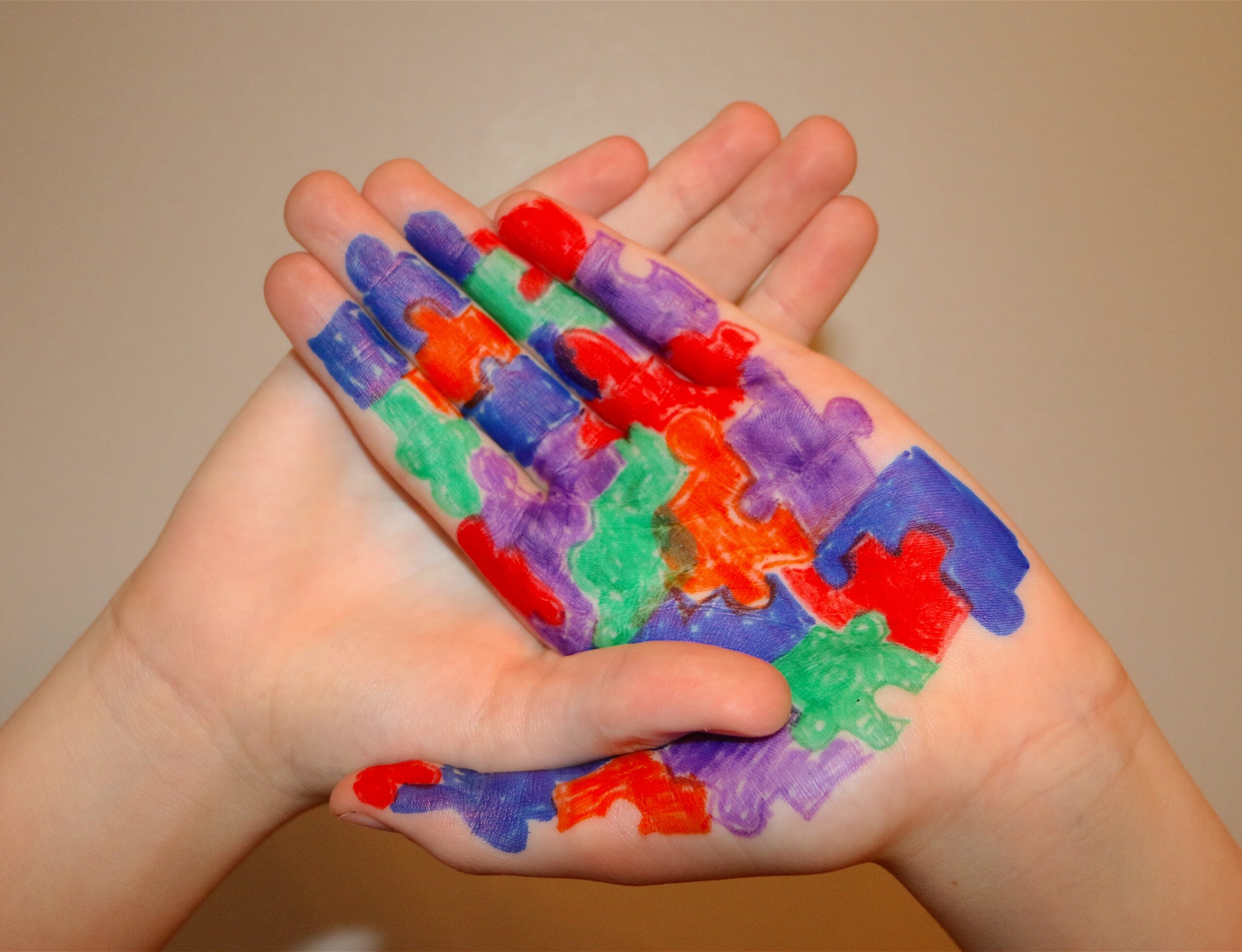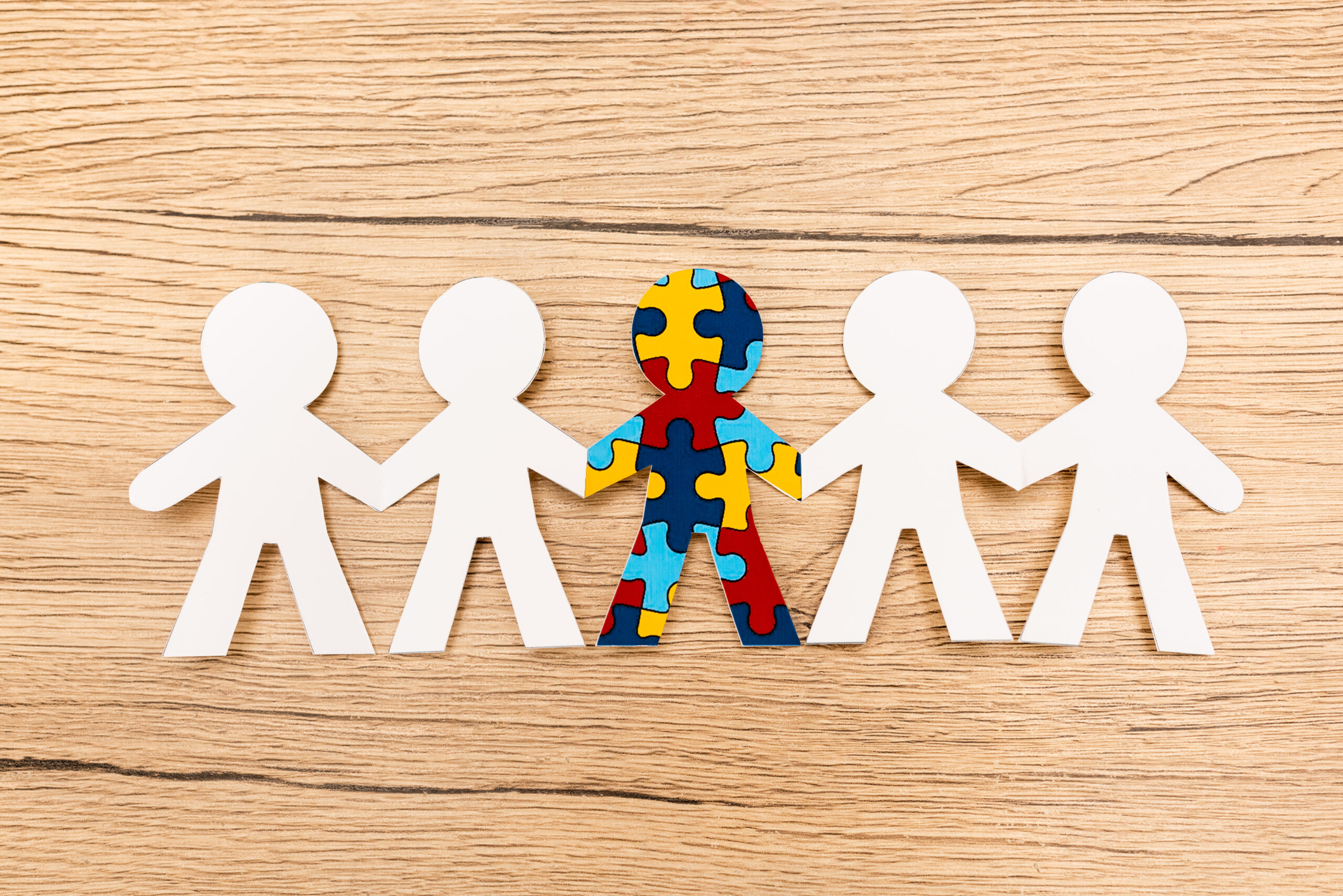In my professional practice as a clinical psychologist, I have often encountered parents who would like to assess their child for Autism Spectrum Disorder (ASD) and/or who have just received a diagnosis. I find that offering support and communicating with parents and the child, about what it means to be on the Autism spectrum is as important, if not more, than the assessment itself. In this blog, I will be sharing with you some initial steps that parents might find helpful so as to support themselves and their children. Moreover, as highlighted below, all children benefit from adopting a positive parenting approach. I hope that increased awareness is created through such psychoeducational blogs and that parents, as well as any professional working with families, will keep such tips in mind.

Understanding ‘the news’
For some parents coming to terms with their children’s ASD diagnosis this may come as a shock, as it might not be what they expected to hear and/or it might be something that they have never heard of before. For other parents, this may come as a form of relief, offering increased understanding of their children’s development and outlook on life. Whatever the reaction, one must keep in mind that there is no right or wrong reaction, but that it is all merely a process of coming to terms with the news, and the need to pace the information as according to the parents’ level of openness and understanding. It is crucial for parents to have the utmost support during this entire journey. Additionally, providing parents with the right resources and access to ASD services, including support groups, is very beneficial. It is helpful for parents to feel that they are not alone and that their feelings, no matter what they are, are valid. It is important to understand that it is not your fault that your child has ASD. It is not something that could have been prevented, and it is not because of your parenting approach. Research tells us that ASD is a neurodevelopmental issue, which may be related to genetics and can emerge due to various factors.
The entire diagnosis journey and parenting experience may be a rollercoaster of emotions. As parents, it is helpful to remember to give yourself time and to find the people who can come closer to understanding your situation, as well as to give you the support that you need. Keep in mind that nowadays more help and support is available. It may be helpful for parents to accept the various emotions that they experience, and to also hold on to the strengths as well as the beauty that they see in their children. No matter what the diagnosis is, your child is still your child, and no one can ever take that fact away from you.
ASD may be seen as children having the ability to experience the world in a different manner and to think, as well as to behave, sometimes, in a different manner. No matter what the situation is, parents have the potential to be their children’s secure support system and stability. Having a diagnosis could be a means to understand your children’s needs in a deeper manner and to access various services. The earlier the support the better! Keep in mind that even if your child is currently not meeting certain developmental milestones, it does not mean that they won’t do so later, especially with the right level of support and intervention. Meet your children where they are, continue to love them and support them in their learning and growth.

All children, no matter the diagnosis, benefit from feeling the love and connection with their parents. Therefore, parents are encouraged to continue to talk, play, read and engage in hobbies together with their children. Apart from this, setting some time for self-care is not selfish, where it is needed to support parents to feel more contained, energetic and grounded when being with their children. Self-care can look like going for a walk, going shopping, talking with a friend, writing in a journal, taking a tea break, practising mindfulness, reading and exercising, as amongst others. Engaging in healthy habits, such as sleeping well and eating healthily are very helpful. Joining a support group for parents is also very much encouraged. In Malta, there is the Autism Parenting Association, which does a lot of valuable work!

What is Autism Spectrum Disorder?
ASD can be described as a neurodevelopmental condition, whereby children who are on the spectrum may have difficulties with verbal and/or non-verbal communication, social interaction, repetitive and restricted interests, or behaviours. Every child with ASD is unique and different. As the term ‘spectrum’ suggests, children with ASD may display a variety of symptoms with different intensity. For instance, some children with ASD may be verbal and able to communicate through words, while others may be non-verbal and may need assistance to communicate their needs and wants. Whatever the intensity, it is pivotal to understand that help is available, and that parents are greatly encouraged to seek therapeutic support for themselves and their children.
Autism is not a disease or something that one can outgrow or be cured from. However, one might learn different coping skills and increase their learning in new skills, so as to help children be more functional and independent in day-to-day life, as well as in relationships. Increasing more awareness on ASD on a societal level is also very beneficial, as little changes in shops, clinics, schools and home may make a big difference for someone who is on the spectrum.

Common presentations of children with ASD :
– Difficulties in interacting adequately in social situations; some children may have difficulties in establishing appropriate eye-contact, tone of voice, understanding different facial expressions, as well as starting and ending social conversations.
– Children may have difficulties in understanding others in a social context, and may find it hard to build, as well as to maintain, social connections.
– Children may find it hard to engage in perspective-taking, and to think of how others may be experiencing the interaction and situation.
– Children may display difficulties with emotional regulation.
– Communication difficulties may be present; this may be verbal or non-verbal communication; repetition of words (echolalia) may be seen.
– Issues with engaging in symbolic play; more comfortable in engaging in functional play, such as wheel spinning.
– Increased or diminished sensory sensitivity.
– Behaviour may be repetitive; this may include spinning, hand-flapping, mannerisms.
– Some children may show a specific interest that may be rigid in nature, such as wishing to view a particular television programme repeatedly and finding it difficult to move away. Specific interests may make children be more hyper-focused on those particular tasks that they enjoy doing.
– Difficulties in accepting changes in routine and the greater need to be prepared for any upcoming changes.
Generally, once children are diagnosed with ASD, they may also be eligible to have additional support at school, including the possibility of an Individualised Educational Programme (IEP). Some children may also benefit from speech therapy, occupational therapy, Applied Behavioural Analysis (ABA), psychological support, psychiatric support and social skills support.
What can parents do to support their children who are on the spectrum?

Talking to my children about Autism
It is pivotal to give children the space and the voice to ask questions, in order to express their thoughts and emotions on the Autism diagnosis. As parents, it is helpful to share psychoeducational and evidence-based material on ASD in an age-appropriate manner. ASD is not something to be ashamed of or to hide away. Thus, having open and positive conversations with the children on these matters is helpful. Therapeutic support may also be valuable at some point, especially when parents feel overwhelmed or uncertain on how to approach various topics. All children have strengths and areas of growth; help your children to understand their talents and work together to expand their limitations, so as to support them in reaching their full potential.
Providing increased structure
Children with ASD function better in more structured environments where there is high predictability. This may be done in various ways, including making a visual schedule for the day with your child. The schedule may include both pictures and words, where they may tick the activity that they have already completed. Giving information about the duration of each activity from before may also be helpful. Some children also appreciate the use of a timer to help them understand better the concept of time. Giving reminders about when an activity is about to end may also help with transitioning from one task to another.
Becoming more conscious and aware of sensory issues

Children with ASD may display sensory difficulties, meaning that they may be hyper or hypo sensitive to the information being given from the five senses (touch, smell, sight, taste and sound). When children are hypersensitive, they may experience senses in a more intense manner, for example, they may be bothered by different lighting conditions or different sounds. Alternatively, when children are hyposensitive, they may not show a reaction to the sensory stimuli that they are being exposed to. For instance, they may not be bothered by an intense foul smell of food, and eat it anyway. Having said this, children on the ASD spectrum may also be described as picky eaters.
As parents, it is helpful to further understand the children’s sensory issues, so as to tailor the environment to their needs as much as possible. Some practical tips which parents may decide to do include adjusting the noise level, removing distractions, making informed choices on what detergents and floor cleaners to use, choosing the most comfortable material for clothes, and so on.

Increasing positive social skills
Children with ASD may find it difficult to interact socially with others, and may need more support in developing more social skills. Parents can support their children through modelling appropriate social interactions, engaging in role-plays, going on play dates, reading books and social stories. Helping children to become more aware of non-verbal cues and body language is also important. Repetition, practice, patience and hope are very useful because learning takes place over time.

Continuing to invest in our significant relationships, including with our partners
With the increasing demands, including that of understanding the various needs of the child and keeping up with the various appointments, one may easily find oneself with little energy left to invest in one’s partner. However, in times of stress, research shows how it is even more important to dedicate some of our time and energy to connecting with significant others. This may be done through daily conversations, messaging or calling one another during the day, planning a date night (with no children) and talking about one’s needs and dreams – be it individual, relational and familial. Keeping up to date with one another and the family’s needs may support partners so as to remain more connected. Studies suggest that those couples who have positive communication and coping skills may be more likely to support each other well in challenging times, and to become even closer and more secure. When partners communicate and increase their awareness on how having a child who is newly diagnosed with ASD may be stressful at times, they may become better at anticipating and overcoming some of those challenges together.
It is important to note that partners may experience the diagnosis journey differently, with some partners being more in denial and others being more accepting, as well as ready to know more. Thus, it is highly recommended that couples seek some therapeutic support, in order to aid them to come to terms with their emotions and the way forward in a united manner, as for the benefit of the entire family system.

Thinking of siblings
When a child is diagnosed with Autism, one needs to also think also about how this may impact on the entire family system, including the siblings. Siblings may experience a range of emotions, including anxiety, uncertainty, loneliness, stress, fear, guilt and anger, as amongst others. Some siblings may not be verbally forthcoming with their feelings, and more information could be obtained from the way that they may be behaving. Moreover, some siblings may come to assume more responsibilities and become more independent from an earlier age. This could lead to what is called ‘parentification’, where siblings assume more the role of a parent rather than that of a child. While it is beneficial for siblings to show high levels of care, sensitivity, altruism and empathy, it is also important for parents to support the siblings in enjoying their childhood.
Supporting the siblings to express their emotions in a safe and healthy way is pivotal. Siblings of children who have ASD may benefit from emotional support and one to one quality time, as well as attention. This sometimes includes having individual and separate activities from their siblings. Furthermore, supporting the siblings to have contacts, including friendships, outside the home, remains very important for their psychosocial development.
It is helpful for parents to communicate with the siblings, and to explain in simple language what is happening and to give them the space to process, as well as to ask, any questions. For older children it might be helpful to provide psychoeducational information on ASD. Through this, siblings may increase their understanding of their brother’s and/or sister’s needs. It is also key to remind the siblings that their brother and/or sister is much more than the ASD diagnosis. They are unique children with their own strengths and abilities as well as personalities, which deserve to be celebrated. Additionally, parents can also find local support groups for siblings, where one can share experiences, emotions, thoughts and coping skills.

Autism and positive parenting
We all know that parenting comes with a lot of challenges. Some children with Autism may have communication difficulties, and may find it hard to verbally express their needs. This, together with other factors such as sensory issues, may increase the likelihood of a meltdown. Meltdowns can be very emotionally draining for parents, and the first thing that parents need to do is to see how they can keep themselves calm, so that they will be able to contain their children better. When all is quieter and calmer, it is helpful to look back at the situation and to try to understand what the triggers behind the meltdown were. This could empower parents to engage in more preventative measures. Some triggers for children with ASD may also be related to hyper or hypostimulation, for example, being very sensitive to different noises and becoming more easily overwhelmed. Reducing the noise in the house or providing the children with noise-cancelling headphones may also be a consideration, especially in situations where noise is inevitable. The positive parenting concepts of focusing on investing in the parent-child relationship, giving specific praise and providing structure, as well as natural consequences, remain pivotal.

Conclusion
I would like the take home message for this blog to be that you are the best person out there who can take care of your children, through loving them and caring for their needs. It is understandable not to know everything about ASD, nor are you expected to! Your child is still your child, and all you are doing will be an investment to support him/her in their development, relationships as well as wellbeing. Reach out for further support and join a support group, where you can meet other parents who are going through similar experiences. Having a child with ASD can be lifechanging. It can provide you with a different lens, through which you may see life – including the value in understanding everyone’s uniqueness and different needs, and the beauty of accepting and appreciating differences.

Charlene
Clinical Psychologist and Family TherapistClinical Supervisor


